#inveigh
Text
Word of the Day -Inveigh
Word of the Day… not actually daily, but whenever I encounter one I think worth sharing and there are not too many on my landing page. Words have always fascinated me, and I am a fan of all types of word play, especially puns. I have a hard time not looking up a word that I am unfamiliar with or not sure of the definition. I like those authors that stretch me by throwing in unexpected terms. …
View On WordPress
0 notes
Text
Rail v. Ra_ile Latynse, gaan toe Die concboy het teen die heiningreling geleun: horisontale steun, staaf, reling, versperring, heining, leuning. 2 Ek is bang om te vlieg - ek verkies om per spoor te gaan: spoorweg, spoorlyn, trein, Archaic US. die karre. Hy was altyd besig om teen die regering te praat: uiter, inveigh, fulminate, spreek hard, afkeur, skel, praat kwaad, verhef 'n mens se stem, vituperate, rant, rant en rave, woed; skree mishandel, aanvat, aangaan; skree, kners op die tande, skuim om die mond, verhoog 'n tint en huil, Slang 'n teef, blaas op, blaas 'n mens se stapel. horizontal support, bar, railing, barrier, fence, banister. vociferate, inveigh, fulminate, speak harshly, declaim, scold, talk angrily, raise one's voice, vituperate, rant, rant and rave, rage; shout abuse, take on, carry on; scream, gnash one's teeth, foam at the mouth, raise a hue and cry, Slang pitch a bitch, blow up, blow one's stack.
1 note
·
View note
Text
Brunette anal fisted by and double fisting a redhead lesbian
Claire Black and pervy uncle fuck right behind stepdad and busts a fat load all over her face
redhead pornstars fisting fuck on stage
Rica mamada sabrosona
Thick Lingerie Goddess Gets Pounded By Nacho Vidal
Free s of ripped nude straight men gay Blonde muscle surfer stud
Ebony sucks on bisex dick as hes ass banged
Hot blonde babysitter sucks bbc
Teen School Girl Hot
Australian girl gets anal fucked with dick and anal beads
#philanthid#Cukor#workweeks#co-operancy#postjugular#seashore#salma#dazzler#salt-cat#superinformally#pyocyanin#blind-head#vein-streaked#superstrata#vivi-#undermist#flimsy#pamphletizing#inveigh#preproduction
0 notes
Text
i like this one, its silly >p<
#lifesteal smp#mapicc#princezam#roshambogames#baconnwaffles0#branzy#clownpierce#yeah jaron#4cvit#pangi#another template :DDDD#i love templates they make me feel like i can edit#ive tried doing my own edit… it wasnt great..#i inveigh other editors its so cool#posting this at like 1 am bc im super bored and dont have anyone to talk to#please talk to me im so lonely 😭#template alert !!
138 notes
·
View notes
Text
Not enough people stop and go "This is a Me issue and I need to work on it and not project outward or lash out at others because of it" and if they did, the world would be much better.
Twitter and TikTok (and tumblr) would be far more boring, but that's all to the good.
#like there are some things that you really do need to go to therapy or seek help for if it is really affecting your life negatively#to the point where you freak out and go off and get triggered#and it's not 'society' or 'the community' or 'the group' or 'culture' or whatever nebulous entity you're invoking and inveighing against
48 notes
·
View notes
Text
Chupando amiga do xvideos
Desi riding cock creampie
Deshi dance
playmates watch porn together Ryder Skye in Stepmother Sex Sessions
Hot bollywood men fake gay sex video and slow old videos first time
Modelando babydoll negro y jugando con mi clitoris sissy
MyAsianBunny Tik Tok Dancing And Bouncing My Titties Wearing Different Outfits And Having Fun
Cfnm dominas stockings
Busty Ebony Lesbian Jenna Foxx Worships Her Mistress
Casado dando o cu pela primeira vez
#akmu#Cromerian#isallobar#aggradational#pluripetalous#Dialonian#unartistlike#headmistress#laevogyrous#flanky#heliocentricity#self-pious#lipectomies#intrathoracic#inveigher#retax#Jerubbaal#gilliflirt#letterings#Douschka
0 notes
Note
Chuuya Nakahara + gun play maybe? Or maybe a more vanilla kink like bondage if you’re not comfortable :)
My beloved anon you're a disgrace, I couldn't manage to think about anything else for days
Chuuya Nakahara ♡ gun play
Minors do not interact. 18+ only
Warnings: the obvious, dubcon, profanity, Chuuya shoots a rat? It's supposed to be a metaphor I'm sorry about this, reader is tied up, enemies
Your heart is pounding in your ears, you can faintly hear is the erratic pace of your breathing. Nervousness? Fear? Wouldn't that please Chuuya.
Perish the thought, fancy hat.
Your bloodshot eyes are looking at him in pure rage, your teeth biting the cloth gagging you, wet with your saliva. You wish it was his flesh instead. Oh but you'll get to it.
"What a sight", Chuuya sighs dramatically. "Harmless and quiet. I could almost bear your presence like this". You dig your fingers in your chains forcefully, chipping a few nails in doing so.
"It suits you" he proceeds "Murky, empty and moist. The natural surroundings of rats". You grunt. God if only the metal would loosen or fracture a bit. You just need a crack and you'd be able to wipe that infuriating grin off his face.
Chuuya takes a few loud steps towards you. The wet and slimy ground making the noise of each stride echo through the room. When he gets right in front of you, he pauses for a moment. He's so close that you can hear the sound of his breathing alternating with the sinister rustle in the shabby cellar.
You're taken aback when you feel the cold muzzle of his gun against your jaw. You gasp when you see his finger moving confidently on the trigger. You hear familiar noise of it being pulled.
"Boom".
It's unloaded. Piece of shit.
"God I'd pay a million dollars to see that look on your face again" he doesn't sound amused though. "Maybe I will".
Complying to Chuuya's wish, an ill-fated rat scoured from a hole in the room towards the stairs. Chuuya stretches his arm out to your side and you jump at the sudden racket. The animal's entrails splatter around the floor in a pool of blood and you snap your head back at the man in front of you.
He runs the head of his gun down your cheek. Beads of sweat slide down your neck and your heaving chest. Fucking hell.
"Do you think the soldiers of the Tsar knew the chances of a gun firing when they played Russian roulette?" he presses the gun under your jaw, right on your pulse point. "They say they did it to get distracted from the stench of the rotting corpses of their comrades. Or do you think that they just relied upon the fate?" there's a long pause. Chuuya hums, staring off. Then his eyes focus on you again. He runs the gun down your neck with unnerving sluggishness, then he uses it to move some of your hair out of the way and trace the opening of your shirt. He makes the first button pop, then the second one and another more until he could see the top of your breasts pushed up by your bra.
Chuuya is enjoying having you in thrall to him way more than he anticipated, way more than he's willing to acknowledge. He pulls down the cloth gagging you.
"Only a fresh-faced novice would expect to play Russian roulette with a pistol" you inveigh and wipe the saliva at the corners of your mouth with your tongue.
"Too bad" he utters in a distracted whisper. Chuuya pushes his gun against your lips.
"What?" you ask with a sneer that would be amused if you didn't want to rip his head off. "Are you that desperate for a little attention, Chuu-chan? Been feeling lonely?". God, each time you open your mouth he wants to bite your tongue. Insufferable stuck-up little punk thinking she's Kazuo Taoka.
"Want me to lick it so you can go home and rub one to it imagining that was your dick instead?" you lay it on thick.
You kiss the tip of his gun, then run your tongue from the rear sight to the tip, eyes set on his.
"Same way as you sitting in your empty apartment drinking 1964 Romanée-Conti pretending to be in boss' place, you fucking ratfink" he means to threaten you with the knowledge of your treacherous designs but his voice comes out breathless, a blush spreading on his cheeks and nose.
Chuuya doesn't give you time to think of another of your godawful comebacks. He swiftly reaches for your underwear ripping it in one single motion. "Be fucking still". You gasp when the cold metal meets your now bare pussy and widen your eyes when you realize that he's trying to guide it inside you. Chuuya grits his teeth, fist clenching around the handle.
You scoff. "It won't fit". Your tone is almost bored, as if you're instructing a silly child on the most basic notion imaginable. "Big ass gun. It's got to be an extension of your ego to make up for the lack of inches in other departments".
"Don't you worry your pretty little head. I'll give you something that will". Chuuya unhooks your chains and you rub your sore wrists, then he presses his gun against your jaw again.
"Don't bite" he warns you, then crushes his lips against yours, a hand reaching down to unzip his pants.
It's going to be a long night. If he entertains you enough to make you forget you want to blow his brains out, that is.
#chuuya smut#chuuya x reader#chuuya nakahara#bsd chuuya#chuuya x you#chuuya x y/n#chuuya x fem!reader#bungo stray dogs smut#bsd smut#bsd x reader#bsd x you#bsd x y/n#bungo stray dogs x reader#bungo stray dogs x you#bungo stray dogs chuuya#eve scribbles
156 notes
·
View notes
Text
Hunting
A/N: Tormenting little Graves for taking away Johnny
@deadbranch 100 Word Challenge
| Masterlist | One-shots |

A hand slams against the wall. The paint chipped off from the pressure as a low growl echoes throughout the office, his name reverberates against the confinement of the room.
“Phillip Graves,” the voice inveighed. Gravelly and gritting. Black pupils flitting around the darkness, purporting to find someone. Another rudimentary growl vibrates through the empty room when no response comes.
Graves holds his breath in fear, watching the ominous figure saunter into his office looking for him. His own words used by you, eerily chuckling.
“You got 10 seconds before I show you the difference between the military, and me.”

#cod-z#phillip graves#cod mw2#cod x reader#call of duty x reader#call of duty fanfiction#cod mw x reader#cod x you#modern warfare x reader#cod fanfic#call of duty modern warfare#cod mwii
39 notes
·
View notes
Text
The Supreme Court is trying to drag America backwards to “Separate but Equal”

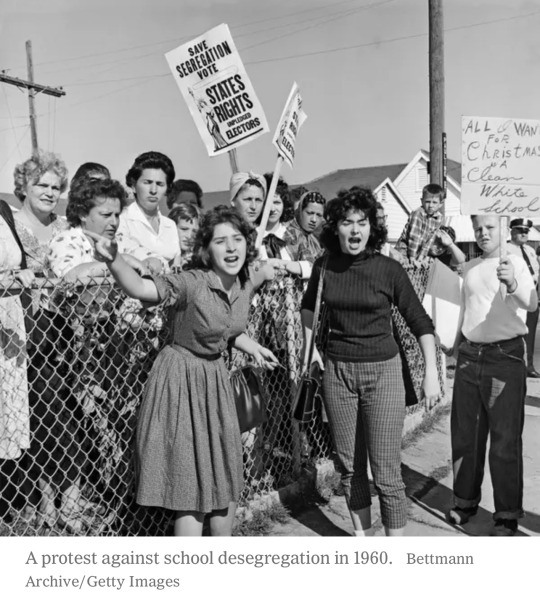
President Andrew Johnson vetoed the nation’s inaugural Civil Rights legislation because, in his view, it discriminated against white people and privileged Black people. The Civil Rights Act of 1866 (which Congress enacted over the veto) bestowed citizenship upon all persons — except for certain American Indians — born in the United States and endowed all persons with the same rights as white people in terms of issuing contracts, owning property, suing or being sued or serving as witnesses. This law was proposed because the Supreme Court had ruled in Dred Scott v. Sanford that African Americans, free or enslaved, were ineligible as a matter of race for federal citizenship, and because many states had barred African Americans from enjoying even the most rudimentary civil rights.
Johnson vetoed the act in part because the citizenship provision would immediately make citizens of native-born Black people while European-born immigrants had to wait several years to qualify for citizenship via naturalization (which was then open only to white people). According to Johnson, this amounted to “a discrimination against large numbers of intelligent, worthy and patriotic foreigners, and in favor of the Negro, to whom, after long years of bondage, the avenues to freedom and intelligence have just now been suddenly opened.” Johnson similarly opposed the provision in the act affording federal protection to civil rights, charging that it made possible “discriminating protection to colored persons.”
A key defect of the Civil Rights Act, according to Johnson, was that it established “for the security of the colored race safeguards which go infinitely beyond any that the general government has ever provided for the white race. In fact, the distinction of race and color is by the bill made to operate in favor of the colored and against the white race.” Johnson opposed as well the 14th Amendment, which decreed that states offer to all persons equal protection of the laws, a provision which he also saw as a wrongful venture in racial favoritism aimed at assisting the undeserving Negro.
In 1875, Congress enacted legislation that prohibited racial discrimination in the provision of public accommodations. Eight years later, in a judgment invalidating that provision, the Supreme Court disapprovingly lectured the Black plaintiffs, declaring that “when a man has emerged from slavery, and by the aid of beneficent legislation has shaken off the inseparable concomitants of that state, there must be some stage in the progress of his elevation when he takes the rank of a mere citizen and ceases to be the special favorite of the laws.”
In 1941, President Franklin D. Roosevelt promulgated Executive Order 8802, which prohibited racial discrimination in the employment of workers in defense industries and established the Fair Employment Practices Commission to carry out the order. Assailing the order, Representative Jamie Whitten, a Mississippi segregationist, complained that it would not so much prevent unfairness as “discriminate in favor of the Negro” — this at a time when anti-Black discrimination across the social landscape was blatant, rife and to a large extent, fully lawful.
Segregationist Southerners were not the only ones who railed against antidiscrimination laws on the grounds that they constituted illegitimate preferences for African Americans. In 1945, the New York City administrator Robert Moses inveighed against pioneering municipal antidiscrimination legislation in employment and college admissions. Displaying more anger at the distant prospect of racial quotas than the immediate reality of racial exclusions, Moses maintained that antidiscrimination measures would “mean the end of honest competition, and the death knell of selection and advancement on the basis of talent.”
Liberals, too, have attacked measures they deemed to constitute illicit racial preferencing on behalf of Black people. When the Congress of Racial Equality, or CORE, proposed “compensatory” hiring in the early 1960s — selection schemes that would give an edge to Black people on account of past victimization and the lingering disabilities caused by historical mistreatment — many liberals resisted. Asked about CORE’s demands, President John F. Kennedy remarked that he did not think that society “can undo the past” and that it was a mistake “to begin to assign quotas on the basis of religion, or race, or color, or nationality.”
Kennedy’s comment that it would be a mistake “to begin” to assign quotas reflects a recurring misimpression that racial politics “begins” when those who have been marginalized make demands for equitable treatment.
When Kennedy spoke, unwritten but effective quotas had long existed that enabled white men to monopolize huge portions of the most influential and coveted positions in society. Yet it was only when facing protests against monopolization that he was moved to deplore status-based quotas.
This same dynamic has been recurrent in subsequent decades: Every major policy seeking to advance the position of Black people has been opposed on the grounds that it was race conscious, racially discriminatory, racially preferential and thus socially toxic. That racial affirmative action in university admissions and elsewhere has survived for so long is remarkable, given the powerful forces arrayed against it.
(continue reading)
#politics#scotus#education#affirmative action#separate but equal#republicans#racism deniers#white supremacy#two americas#double standards#racism
139 notes
·
View notes
Text
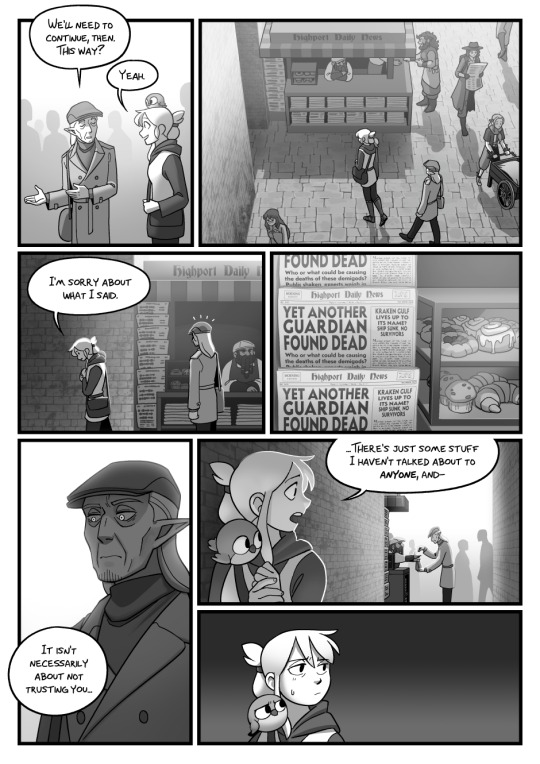
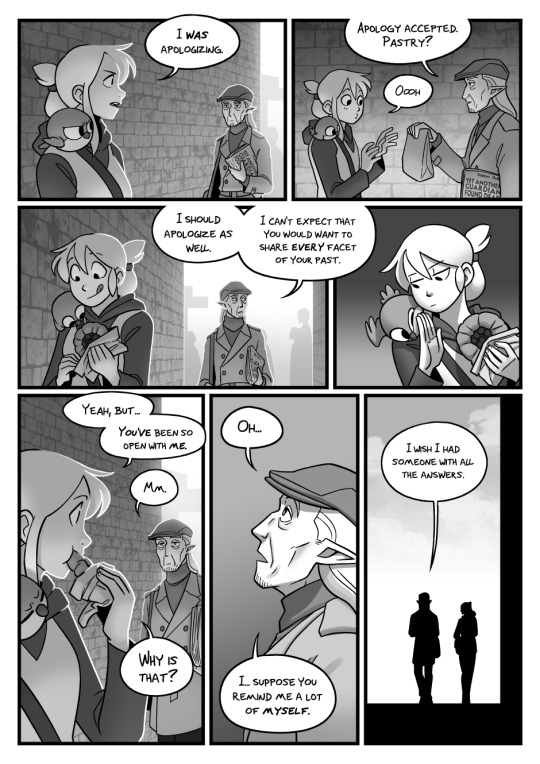
Tales from Alderwood
Chapter 3: Trust or Loyalty (part 8)
Quick update: since we caught up with our main site's upload backlog, we'll be reducing updates to once a week (I guess Fridays?) with two pages each.
Reader cameos this upload:
Inveigh | Mixelspixels | MaxNotMaxine | Vi | sesamenom
Prologue
Previous
Stay updated and participate in discussion on our main site
(...or read pages way in advance on Patreon)
62 notes
·
View notes
Text
"Simon Schama in the Financial Times, Oct. 13, 2023:
"Confronted with enormity: murdered infants, abducted grandmothers, slaughtered villagers, lusty chants of 'gas the Jews' at the Free Palestine demonstration in Sydney, mere words feel like weak carriers of so much horror and sorrow. Journalistic bloviation on the cause of this and the effect of that seems an indecency, at least until the bodies are gathered and returned to families. So context me no contexts, analyse me no analyses, suspend your partially informed diagnoses; leave off your strenuous efforts at even-handedness. Let us be, to grieve, rage, weep; say the mourners’ kaddish.
"Perhaps images, then, not words? Of terrified young people who in a trice went from dancing to frantic running in a futile attempt to escape the spray of bullets; of a kibbutz dog shot as it emerged from a house (that must have helped Free Palestine); a young woman with bloody marks staining her sweatpants as she is bundled away by captors; a knife lying on a sofa in the kibbutz Be’eri, where 10 per cent of the population were killed; or visual evidence of 'resistance' like the video of Mor Bayder’s murdered grandmother uploaded by her killers to Mor’s Facebook page.
"Sympathy, for the moment, abounds, for as the writer Dara Horn pointed out in the title of her unsparing book of essays, People Love Dead Jews; living ones, especially should we have the temerity to defend ourselves, not so much. There is, rightly, sympathy too for the Palestinians of Gaza who are also victims and prisoners of Hamas and do not deserve to be punished for the wickedness perpetrated by their fanatical tyrants, nor for the delusion that the deaths of Jewish families will make Israel disappear.
"We do not disappear. But we do suffer. The great Columbia University historian Salo Wittmayer Baron spent his career inveighing against the fatalism of what he called 'the lachrymose conception' of Jewish history. I myself have made an effort to go with the positive: to celebrate the poetry, music, religious and secular literature of the diaspora; to think about Jewish history with the human smoke of Auschwitz blown away by time and education.
"But this now seems an idle hope. From reports all over the world in the days following the massacres last weekend, it is obvious that the spectacle of dead Jews can still excite, rather than restrain, antisemitism.
"Apparently it still needs saying that Zionism is not the cause, but the consequence, of perennial, dehumanising, antisemitism. The massacre of Jews not only long predates Zionism but is a constant fact of diaspora existence. Jews were attacked and exterminated in both the Muslim and Christian medieval worlds: six thousand butchered in Fez in 1033; thousands more in Almoravid Granada in 1066; the entire community of York in 1190. A friend of mine, currently in Spain, tells me almost all of the rarefied intellectuals she has encountered have been adamant that the victims were to blame, which, given the murder of thousands of Jews in 1391, is a bit rich.
"Nor was this persecution really about religion. Survivors who converted were, for all their professions of Christian faith, still tortured and burnt alive by an Inquisition suspicious that their blood was too impure for salvation. So Jews have been murdered for being too separate and murdered for being not separate enough. They were killed in vast numbers by Cossacks in 1648; by Russian pogroms in the 19th and 20th centuries. In 1899 an anti-Dreyfusard journal asked its readers what they would like to do with Jews. The responses were enthusiastic and ingenious: use them as targets for new artillery, turn them into dog food and, needless to say, gas them.
"In the face of lethal peril, help has been conditional. Children were rescued by the Kindertransport on condition of being separated from their parents, many of whom they would never see again. A conference on 'refugees' was held in Bermuda in 1943, when the Final Solution was known, basically on condition the word 'Jew' was never mentioned. It was this lose/lose situation that moved Theodor Herzl, the father of modern Zionism, prophetic about a coming annihilation, to insist that in the end Jews must count only on themselves for their protection.
"That core Zionist article of faith collapsed last Saturday, not least because of the Netanyahu government’s obstinate refusal to listen to Israel’s security chiefs, who warned him that the safety of the country was being imperilled by policies that were dangerously divisive. Whatever the immediate unity of the country, his days as prime minister are numbered and his legacy will forever be this catastrophe. But that inevitable departure will not staunch the tears, bring back the dead or heal the trauma. And should there be a ground invasion, innocent Palestinian and Jewish lives will pay a terrible price, not that Hamas cares about either.
"But Israel will survive, revive. If only because, even in this dreadful extremity, one text from Deuteronomy, 30. 19 lies at the indefatigably beating heart of Jewish history:
"I call heaven and earth to record this day against you, that I have set before you life and death, a blessing and a curse: therefore choose life, that both thou and thy seed may live."
h/t Shoshana Hantman
31 notes
·
View notes
Text
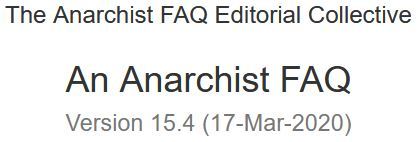
E.1.1 Is industry the cause of environmental problems?
Some environmentalists argue that the root cause of our ecological crisis lies in industry and technology. This leads them to stress that “industrialism” is the problem and that needs to be eliminated. An extreme example of this is primitivism (see section A.3.9), although it does appear in the works of “deep ecologists” and liberal greens. However, most anarchists are unconvinced and agree with Bookchin when he noted that “cries against ‘technology’ and ‘industrial society’ [are] two very safe, socially natural targets against which even the bourgeoisie can inveigh in Earth Day celebrations, as long as minimal attention is paid to the social relations in which the mechanisation of society is rooted.” Instead, ecology needs “a confrontational stance toward capitalism and hierarchical society” in order to be effective and fix the root causes of our problems. [The Ecology of Freedom, p. 54]
Claiming that “industrialism” rather than “capitalism” is the cause of our ecological problems allowed greens to point to both the west and the so-called “socialist” countries and draw out what was common to both (i.e. terrible environmental records and a growth mentality). In addition, it allowed green parties and thinkers to portray themselves as being “above” the “old” conflicts between socialism and capitalism (hence the slogan “Neither Right nor Left, but in front”). Yet this position rarely convinced anyone as any serious green thinker soon notes that the social roots of our environmental problems need to be addressed and that brings green ideas into conflict with the status quo (it is no coincidence that many on the right dismiss green issues as nothing more than a form of socialism or, in America, “liberalism”). However, by refusing to clearly indicate opposition to capitalism this position allowed many reactionary ideas (and people!) to be smuggled into the green movement (the population myth being a prime example). As for “industrialism” exposing the similarities between capitalism and Stalinism, it would have been far better to do as anarchists had done since 1918 and call the USSR and related regimes what they actually were, namely “state capitalism.”
Some greens (like many defenders of capitalism) point to the terrible ecological legacy of the Stalinist countries of Eastern Europe and elsewhere. For supporters of capitalism, this was due to the lack of private property in these systems while, for greens, it showed that environmental concerns where above both capitalism and “socialism.” Needless to say, by “capitalism” anarchists mean both private and state forms of that system. As we argued in section B.3.5, under Stalinism the state bureaucracy controlled and so effectively owned the means of production. As under private capitalism, an elite monopolised decision making and aimed to maximise their income by oppressing and exploiting the working class. Unsurprisingly, they had as little consideration “first nature” (the environment) as they had for “second nature” (humanity) and dominated, oppressed and exploited both (just as private capitalism does).
As Bookchin emphasised the ecological crisis stems not only from private property but from the principle of domination itself — a principle embodied in institutional hierarchies and relations of command and obedience which pervade society at many different levels. Thus, ”[w]ithout changing the most molecular relationships in society — notably, those between men and women, adults and children, whites and other ethnic groups, heterosexuals and gays (the list, in fact, is considerable) — society will be riddled by domination even in a socialistic ‘classless’ and ‘non-exploitative’ form. It would be infused by hierarchy even as it celebrated the dubious virtues of ‘people’s democracies,’ ‘socialism’ and the ‘public ownership’ of ‘natural resources,’ And as long as hierarchy persists, as long as domination organises humanity around a system of elites, the project of dominating nature will continue to exist and inevitably lead our planet to ecological extinction.” [Toward an Ecological Society, p. 76]
Given this, the real reasons for why the environmental record of Stalinist regimes were worse that private capitalism can easily be found. Firstly, any opposition was more easily silenced by the police state and so the ruling bureaucrats had far more lee-way to pollute than in most western countries. In other words, a sound environment requires freedom, the freedom of people to participate and protest. Secondly, such dictatorships can implement centralised, top-down planning which renders their ecological impact more systematic and widespread (James C. Scott explores this at great length in his excellent book Seeing like a State).
Fundamentally, though, there is no real difference between private and state capitalism. That this is the case can be seen from the willingness of capitalist firms to invest in, say, China in order to take advantage of their weaker environmental laws and regulations plus the lack of opposition. It can also be seen from the gutting of environmental laws and regulation in the west in order to gain competitive advantages. Unsurprisingly, laws to restrict protest have been increasingly passed in many countries as they have embraced the neo-liberal agenda with the Thatcher regime in the UK and its successors trail-blazing this process. The centralisation of power which accompanies such neo-liberal experiments reduces social pressures on the state and ensures that business interests take precedence.
As we argued in section D.10, the way that technology is used and evolves will reflect the power relations within society. Given a hierarchical society, we would expect a given technology to be used in repressive ways regardless of the nature of that technology itself. Bookchin points to the difference between the Iroquois and the Inca. Both societies used the same forms of technology, but the former was a fairly democratic and egalitarian federation while the latter was a highly despotic empire. As such, technology “does not fully or even adequately account for the institutional differences” between societies. [The Ecology of Freedom, p. 331] This means that technology does not explain the causes for ecological harm and it is possible to have an anti-ecological system based on small-scale technologies:
“Some of the most dehumanising and centralised social systems were fashioned out of very ‘small’ technologies; but bureaucracies, monarchies, and military forces turned these systems into brutalising cudgels to subdue humankind and, later, to try to subdue nature. To be sure, a large-scale technics will foster the development of an oppressively large-scale society; but every warped society follows the dialectic of its own pathology of domination, irrespective of the scale of its technics. It can organise the ‘small’ into the repellent as surely as it can imprint an arrogant sneer on the faces of the elites who administer it … Unfortunately, a preoccupation with technical size, scale, and even artistry deflects our attention away from the most significant problems of technics — notably, its ties with the ideals and social structures of freedom.” [Bookchin, Op. Cit., pp. 325–6]
In other words, “small-scale” technology will not transform an authoritarian society into an ecological one. Nor will applying ecologically friendly technology to capitalism reduce its drive to grow at the expense of the planet and the people who inhabit it. This means that technology is an aspect of a wider society rather than a socially neutral instrument which will always have the same (usually negative) results. As Bookchin stressed, a “liberatory technology presupposes liberatory institutions; a liberatory sensibility requires a liberatory society. By the same token, artistic crafts are difficult to conceive without an artistically crafted society, and the ‘inversion of tools’ is impossible with a radical inversion of all social and productive relationships.” [Op. Cit., pp. 328–9]
Finally, it should be stressed that attempts to blame technology or industry for our ecological problems have another negative effect than just obscuring the real causes of those problems and turning attention away from the elites who implement specific forms of technology to further their aims. It also means denying that technology can be transformed and new forms created which can help produce an ecologically balanced society:
“The knowledge and physical instruments for promoting a harmonisation of humanity with nature and of human with human are largely at hand or could easily be devised. Many of the physical principles used to construct such patently harmful facilities as conventional power plants, energy-consuming vehicles, surface-mining equipment and the like could be directed to the construction of small-scale solar and wind energy devices, efficient means of transportation, and energy-saving shelters.” [Bookchin, Op. Cit., p. 83]
We must understand that “the very idea of dominating first nature has its origins in the domination of human by human” otherwise “we will lose what little understanding we have of the social origin of our most serious ecological problems.” It this happens then we cannot solve these problems, as it “will grossly distort humanity’s potentialities to play a creative role in non-human as well as human development.” For “the human capacity to reason conceptually, to fashion tools and devise extraordinary technologies” can all “be used for the good of the biosphere, not simply for harming it. What is of pivotal importance in determining whether human beings will creatively foster the evolution of first nature or whether they will be highly destructive to non-human and human beings alike is precisely the kind of society we establish, not only the kind of sensibility we develop.” [Op. Cit., p. 34]
#environment#climate crisis#climate change#environmentalism#faq#anarchy faq#revolution#anarchism#daily posts#communism#anti capitalist#anti capitalism#late stage capitalism#organization#grassroots#grass roots#anarchists#libraries#leftism#social issues#economy#economics#climate#ecology#anarchy works#solarpunk#anti colonialism#mutual aid#cops#police
12 notes
·
View notes
Text
I think the karmic justice/divine retribution angle of THG that Ballad has brought in is even better because not only is Snow defeated by a girl who reminds him of Lucy Gray - Katniss is a girl who has similarities to the younger self he betrayed when he chose darkness over light.
[There's metas on those similarities here, here, and here]
And I inveigh against the "born evil" read of Coriolanus so hard in part because I think it rips the heart out of that comparison and contrast. Good people are just Good and firmly in the Good category without struggle, without work, and Bad people are just born Bad and stay in that category forever. It tells me nothing that moves me in my life or speaks to the actual realities of being human, which--if you try to do it decently--is "rough as a briar" as Lucy Gray put it, "like walking through fire."
Katniss and Peeta are able to walk through the fire -- and they pay the price, they are burned by it. They lose so much. But they are able to get up and keep walking on the road of life because they're doing it together, supporting each other in the work of being the people they want to be.
And that stands out so much because now we we've been shown that the sin that kept the Games alive was the inverse of that: a hard-nosed survivor who betrayed his artist, his loving thoughtful true-hearted beloved, when she extended a hand, offering to walk the road of life together, through struggle and pain and joy.
It highlights the stunning affirmation of life and hope that is Katniss' capacity to do the opposite. Their beloveds are both brave and capable; they've developed their own worldviews at a young age and will follow those through, the question is which path they will choose. In this sense, the hero and villain serve the powerful role those characters can serve in a story, which is to articulate a heightened and stylized version of the paths and choices that--in one way or another--lie before all of us.
#the hunger games#katniss everdeen#coriolanus snow#the ballad of songbirds and snakes#thg meta#my meta#I can't think of another YA book series I read 10 years ago that can still speak to me like this. It's so delightful.#kudos to collins!!#and thank you for coming to my 99 part TED talk lolol
31 notes
·
View notes
Quote
Almost no one who tries to make it in the crowdfunded economy succeeds, whatever the medium or genre they work in. Just like most published books fail. Griffin and others who inveigh against the gatekeepers, for all of their good points, consistently mistake the gatekeepers as the source of all that failure. But the source of that failure is that the public has a finite appetite for media, tends to mostly like the same things, and has limited time to discover new artists.
Publishing is Designed to Make Most Authors Feel Like Losers Even While the Industry Makes Money
8 notes
·
View notes
Text
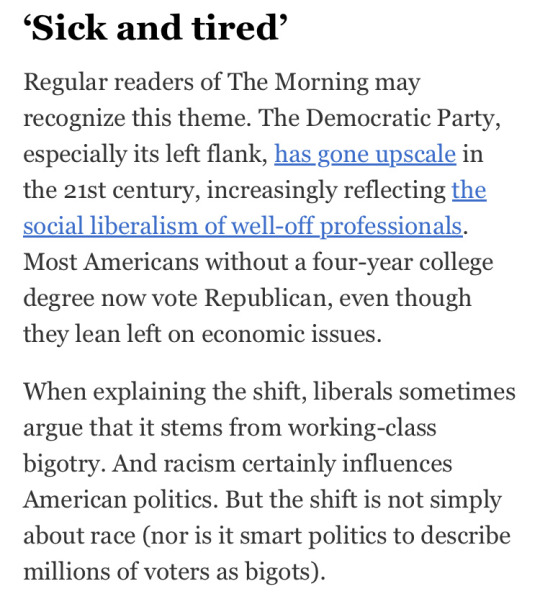
“The democratic party has grown increasingly indifferent to the working class; this is particularly true (somehow) of the flank of the party to overtly ally itself with the interests of the workers in class struggle. This is why we need biden, uniquely capable of reaching the hardworking proletarians of this country after just having crushed the most promising American labour strike in recent history, to counterbalance liberal bourgeois tendencies in the party, like the social democratic contender during the most recent presidential electoral cycle who spent every available opportunity inveighing against the death of labour power and a corrupt faction of economic elites”
95 notes
·
View notes
Text
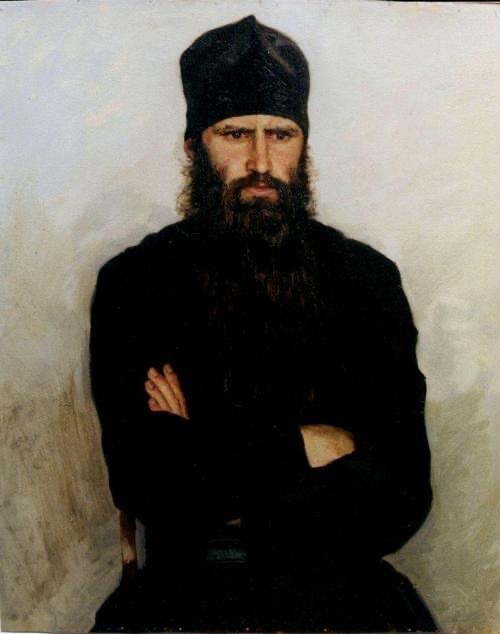
I have seen some committing the gravest sins in secret and without exposure; and in their supposed purity, they have harshly inveighed against persons who have had a petty fall in public. To judge others is a shameless arrogation of divine prerogative; to condemn is the ruin of one’s soul.
St. John Climacus
104 notes
·
View notes